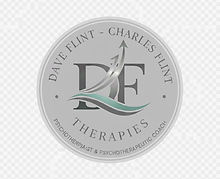New Year Resolutions Ideas 2025: Embracing Change and Growth
- Dave Flint

- Nov 20, 2025
- 3 min read
Updated: Dec 18, 2025
Understanding the Difference Between Coaching and Therapy
Before diving into resolution ideas, it helps to clarify the difference between coaching and therapy. Both aim to support personal growth but serve different purposes:
Therapy focuses on healing emotional wounds, addressing mental health issues, and understanding past experiences.
Life coaching centres on setting goals, creating action plans, and moving forward with motivation and accountability.
Many people benefit from combining therapy and life coaching, using therapy to resolve internal barriers and coaching to build new habits and reach goals. Knowing this difference between coaching and therapy helps in choosing the right support for your new year self-improvement goals.
Combining the Two: The Benefits of Insight with Objectives
Psychotherapeutic coaching is a goal-oriented, collaborative, and action-focused approach that strategically blends the deep, insightful understanding of psychotherapy with the practical, results-driven structure of traditional coaching. It is particularly powerful for men, as it reframes the process not as an admission of being "broken," but as a strategic, strength-based step toward improvement and "fixing" life's challenges.
Appealing to those who prefer tangible progress, it moves beyond aimless "talking about feelings" to focus on developing concrete strategies and skills to manage stress, anxiety, or anger effectively. Client and coach work as partners to set specific, achievable goals—from improving key relationships to boosting emotional intelligence and career performance—all within a safe, confidential, and judgment-free space. This structure leverages existing strengths like self-reliance and problem-solving, defining the act of seeking help as an ultimate act of courage and self-leadership.
1. Prioritise Mental Health with Therapy and Life Coaching
Mental health often takes a backseat in daily life. A resolution to prioritise mental well-being can include:
Scheduling regular sessions with a therapy coach or therapist.
Practicing mindfulness or meditation daily.
Journaling emotions and progress.
This approach blends therapy and life coaching, helping to identify emotional blocks and develop strategies for resilience.
2. Build a Consistent Morning Routine
Starting the day with intention sets a positive tone. New year new you tips often highlight morning routines that include:
Stretching or light exercise.
Healthy breakfast.
Planning the day’s priorities.
A therapy coach can help tailor a routine that fits your lifestyle and supports your mental and physical health.
3. Set Realistic Fitness Goals
Physical health impacts mental clarity and mood. Instead of vague goals like “get fit,” try:
Walking 30 minutes five times a week.
Joining a beginner yoga class.
Tracking progress with a fitness app.
Life coaching and therapy can work together to keep motivation high and address any emotional resistance to exercise.
4. Cultivate Meaningful Relationships
Social connections improve happiness and reduce stress. Resolutions might include:
Reaching out to one friend or family member weekly.
Joining a community group or class.
Practicing active listening and empathy.
Therapy can help heal past relationship wounds, while coaching supports building new social habits.
5. Learn a New Skill or Hobby
Engaging the mind with new challenges promotes growth. Ideas include:
Taking a cooking or art class.
Learning a language.
Starting a garden.
A therapy coach can help overcome self-doubt and maintain commitment to learning.
6. Practice Gratitude Daily
Gratitude improves outlook and reduces negative thinking. Try:
Writing three things you’re grateful for each day.
Sharing appreciation with others.
Reflecting on positive moments before bed.
Therapy and life coaching both encourage gratitude as a tool for emotional balance.
7. Manage Stress with Healthy Boundaries
Stress management is key to long-term well-being. Resolutions can focus on:
Saying no to extra commitments.
Limiting screen time.
Scheduling regular breaks during work.
A therapy coach can guide you in recognizing unhealthy patterns and setting boundaries that protect your energy.
8. Improve Financial Wellness
Financial stress affects mental health. New year resolutions ideas 2025 for money management include:
Creating a monthly budget.
Setting savings goals.
Learning about personal finance.
Life coaching and therapy can address emotional spending habits and build practical money skills.
9. Volunteer or Give Back
Helping others fosters purpose and connection. Consider:
Volunteering monthly at a local charity.
Donating to causes you care about.
Offering skills pro bono.
Therapy and life coaching encourage acts of kindness as part of holistic self-improvement goals.
10. Commit to Regular Reflection and Adjustment
Change takes time and flexibility. Keep new year resolutions by:
Reviewing progress weekly or monthly.
Adjusting goals as needed.
Celebrating small wins.
Working with a therapy coach supports honest reflection and sustained motivation.
Conclusion: Embracing Your Journey
As you embark on this journey of self-improvement, remember that change is a gradual process. Each small step you take contributes to your overall growth. Embrace the support of therapy and life coaching as you navigate your path.
By prioritising your mental health and setting realistic goals, you can create a fulfilling life. Remember, you are not alone in this journey. Seeking help is a sign of strength, and it can lead to profound transformation.

Author-Dave Flint MBACP (Accred)
BSc (Hon) Psychology





Comments